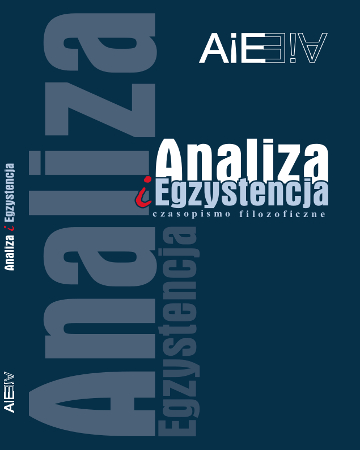
ISSN: 1734-9923
eISSN: 2300-7621
OAI
DOI: 10.18276/aie.2016.34-03






Lista wydań /
34 (2016)
Neutralność światopoglądowa
| Autorzy: |
Arkadiusz
Chrudzimski
Uniwersytet Szczeciński |
| Słowa kluczowe: | uzasadnienie epistemiczne argumentacja religia neutralność argument pragmatyczny |
| Data publikacji całości: | 2016 |
| Liczba stron: | 25 (45-69) |
Abstrakt
In this paper I focus on the concept of neutrality taken in the meaning typical for political discussions concerning e.g. the religious neutrality of the state. I take it for granted that the huge majority of educated people belonging to the so called “western culture” would agree that the most important institutions of our social life – such as schools, courts, and parliaments – should be neutral in this sense. But on the other hand it is extremely difficult to formulate a set of precise and reliable criteria allowing us to exclude particular statements, arguments or kinds of discourse as violating this principle of neutrality. The sad truth is that the term “neutrality”, even if restricted to the meaning that is relevant to this paper, is rather vague. Nevertheless I want to propose three types of criteria that can be helpful in attaining this goal. They will be termed: (i) content criterion, (ii) epistemic criterion, and (iii) pragmatic criterion. It seems that if we apply all these criteria together, we will be able to secure a reasonable degree of neutrality in our public debates.
Pobierz plik
Plik artykułu
Bibliografia
| 1. | Brentano F. (1889/1989), O źródle poznania moralnego, Warszawa: PWN 1989. |
| 2. | Chrudzimski A. (1998), Brentanowska filozofia moralności, „Etyka”, 31, |
| 3. | 109–124. |
| 4. | Chrudzimski A. (2009), Brentano, Marty, and Meinong on Emotions and Values, |
| 5. | [w:] Values and Ontology, B. Centi, W. Huemer (red.), Berlin: De Gruyter, |
| 6. | 171–189. |
| 7. | De Sousa R. (1987), The Rationality of Emotion, Cambridge Mass.: The MIT |
| 8. | Press. |
| 9. | Grobler A. (2008), Metodologia Nauk, Kraków: Aureus. |
| 10. | Habermas J. (2015), Teoria działania komunikacyjnego, tom 1/2, Warszawa: |
| 11. | PWN. |
| 12. | Hare R.M. (1997), Sorting Out Ethics, Oxford: Clarendon Press. |
| 13. | Janikowski W. (2008), Amoralizm i psychopatia, „Analiza i Egzystencja”, |
| 14. | 8, 35–47. |
| 15. | Krzemkowska-Saja J. (2012), Namiętności duszy a współczesny spór o naturę emocji, |
| 16. | „Filo-Sofija”, 17 (2012), 137–146. |
| 17. | Krzemkowska-Saja J. (2013), Czy potrzebujemy pojęcia prawdy emocjonalnej?, |
| 18. | „Przegląd Filozoficzny – Nowa Seria”, 1/2014 (85), 47–61. |
| 19. | Pollock J.L. (1987), Contemporary Theories of Knowledge, London: Hutchinson. |
| 20. | Rutkowski M. (2013), Kiedy powstaje istota ludzka? Aborcja i doświadczenia na |
| 21. | zarodkach, Kraków: Universitas. |
| 22. | Saja K. (2008), Język etyki a utylitaryzm. Filozofia moralna Richarda M. Hare’a, |
| 23. | Kraków: Aureus. |
| 24. | Waismann F. (1945), Verifiability, „Aristotelian Society”, suppl. 19: 119–150. |
| 25. | Williamson T. (1994), Vagueness, London and New York: Routledge. |